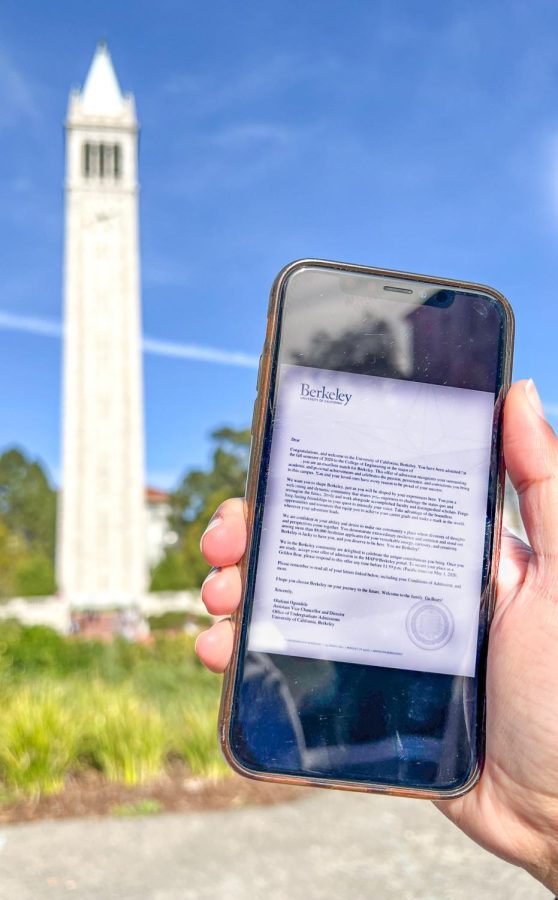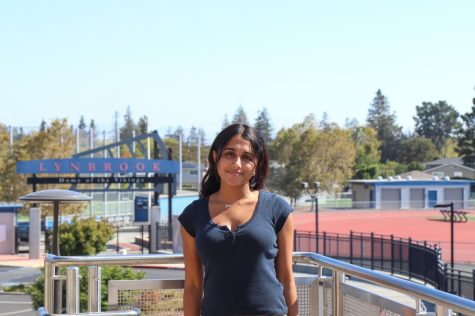Berkeley admission limits stir controversy
Changes in Berkeley admissions have caused distress among Class of 2022 seniors and their families.
April 5, 2022
On March 14, Gov. Gavin Newsom signed a bill that overturned a controversial ruling that would have forced UC Berkeley to immediately decrease student enrollment. Bill 118 gives California’s public colleges and universities 18 months to complete an environmental review before a court can limit a college’s on campus population — meaning Berkeley’s problems are not entirely resolved.
The California Supreme Court found that Berkeley violated the California Environmental Quality Act, which was passed in 1970 in an effort to mandate public processes that could have impacts on the environment. In court, Berkeley had claimed that their only legal obligation was to evaluate the impacts of enrollment increase only when it concerns physical construction of new buildings; however, the California’s First District Court of Appeal court rejected their argument. In August 2021, an Alameda County Superior Court ordered Berkeley to freeze campus enrollment at the 2020-21 level in response to SBN’s lawsuit. Although the UC Regents requested to postpone the cap of the enrollment, the California Supreme Court ultimately denied the petition. On March 3, Berkeley was forced to accept 5,000 less students in the upcoming school year, significantly impacting the graduating Class of 2022.
“I think the enrollment cap went too far, and it’s a clear indication in the breakdown of communication between the two entities,” Lynbrook college counselor Barb Takahashi said. “They should’ve been able to come up with their own solution without going to court.”
The enrollment cap distressed high school students across the country who had applied to Berkeley in the upcoming year. In addition to cutting thousands of students, Berkeley had planned on requiring thousands of incoming freshmen to take their classes online, and an additional 650 undergraduates deferred until January 2023. Some seniors at Lynbrook believed that their chances of getting accepted to Berkeley were significantly reduced, while those accepted during early admissions were fearful of the possibility of having to take classes remotely.
“Having to take my classes online would suck,” said senior Anya Sikri, who is planning on attending Berkeley in the upcoming school year. “You socialize the most during the first six months of coming to college. Having to take my classes online would mean I would be completely isolated and wouldn’t be able to make new friends.”
The freezing of enrollment caused mixed reactions from around the nation. SBN was undeniably supportive; others denounced the cap, including Newsom and Berkeley Mayor Jesse Arreguin. In a statement, UC Berkeley Chancellor Carol Christ said that the court order was “devastating news for the students that worked so hard and have earned an offer of a seat in our fall 2022 class. Our fight on behalf of every one of these students continues.”
Save Berkeley’s Neighborhood, a 501(c)(3) public charity made up of Berkeley residents, campaigned against UC Berkeley for their failure to take into consideration the environmental impacts of their increase in enrollment, including the displacement of lower income tenants, the homelessness and noise and disruption in neighborhoods bordering the campus. In a 2017 survey, 10% of Berkeley’s students reported that they have experienced homelessness while in college. Berkeley has beds for only one-fifth of its student population, the lowest among California universities. SBN President Phil Bokovy believes that before Berkeley accepts more students, it needs to provide housing for the ones it already has.
In September 2020, the California Supreme Court affirmed a legal victory for SBN and gave them the right to sue Berkeley over environmental impacts.
“We sued the university because they had not examined the environmental impact of enrollment increase,” Bokovoy said in an interview with National Public Radio.
To the relief of thousands of UC Berkeley applicants, Newsom’s signage of SB 118 ensures that student enrollment would not immediately decrease under CEQA. Newsom stated that the capping of enrollment undermines critical priorities of the state, including expanding access to education at all levels and opportunities for transfer students.
Although there is temporary relief for incoming Berkeley students, Berkeley has 18 months to address their environmental impact, and if change does not occur, they have the potential to be sued again.



































































